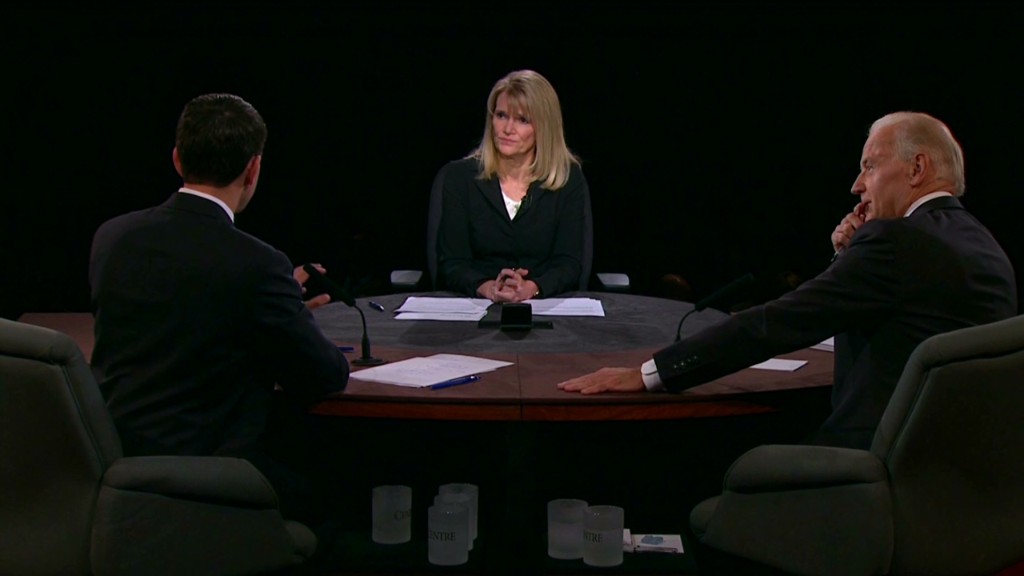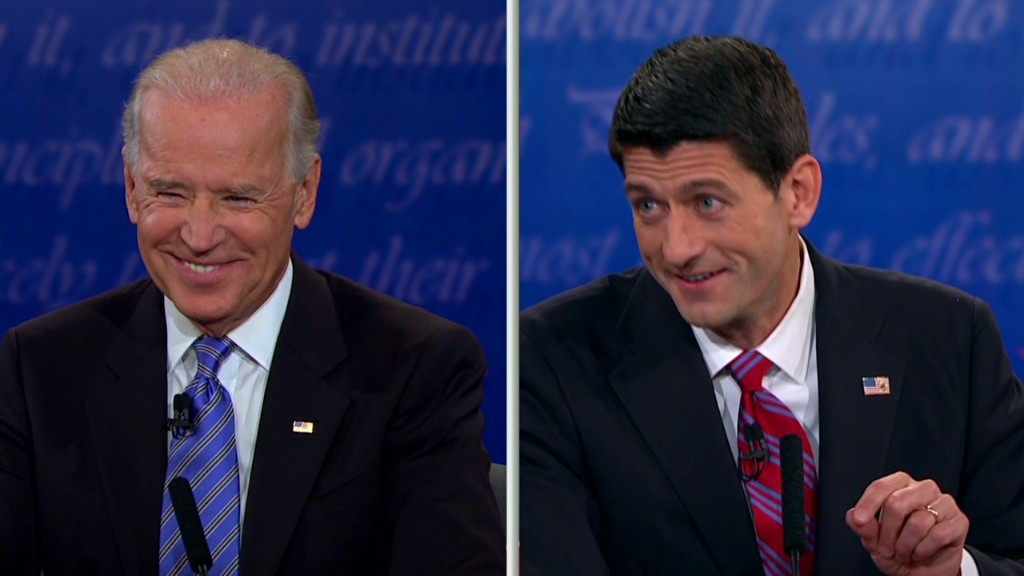
In a vice presidential debate heavily focused on government finances, incumbent Joe Biden and Rep. Paul Ryan traded barbs over how much the Pentagon should be allowed to spend.
Ryan accused the Obama administration of wanting to cut defense spending by $1 trillion over the next ten years. Biden accused Republican candidate Mitt Romney of wanting to increase spending by $2 trillion. Both denied the talking points produced by their opponent.
So what's going on?
President Obama has made some specific proposals related to military spending.
In his latest budget, the president proposed spending roughly $5.8 trillion on the Pentagon's base budget over the next decade. In 2022, defense would account for roughly 11% of total federal spending.
Obama's proposal incorporates the $487 billion reduction in defense spending called for under the Budget Control Act that ended last year's debt ceiling crisis. But it does not include the additional $500 billion in automatic cuts also outlined in the act and scheduled for next year.
The president, like many lawmakers in both parties, does not favor the additional cuts. But the White House has indicated he would oppose legislation that cancels them unless Congress replaces the cuts with a "balanced" debt reduction plan that includes higher tax rates on the rich -- something Republicans oppose.
Many in Congress hope that some sort of deal is reached -- and that some or all of the $500 billion in automatic cuts never go into effect.
Related: $2 trillion divides Obama and Romney on defense
Romney, meanwhile, has said that one of his top priorities is to reverse any defense cuts.
He also has proposed setting the Pentagon's annual base budget -- before additional spending on wars -- at a minimum of 4% of gross domestic product.

The Republican candidate said last month that his goal is "making sure that we have a military so strong that no one in the world would ever [want] to test it. And that suggests to me a commitment in the range of 4% of GDP is the right level."
That means he could spend roughly $8 trillion on defense over the next decade, or about $2.1 trillion more than Obama has proposed.
Commentary: Defense cuts won't hurt that much
And that number assumes a gradual increase to 4% of GDP. The additional spending would hit $2.3 trillion over a decade if the Pentagon's budget were to immediately jump to 4% of GDP.
At the same time, Romney has promised to balance the country's budget by the end of his second term. That's going to be a tall order, even if he favored defense cuts.
The United States is by far the biggest spender on defense. Last year, Americans spent more than all the other countries in the top 10 list combined, including five times more than China, the No. 2 spender.
-- CNNMoney's Jeanne Sahadi contributed to this report.


